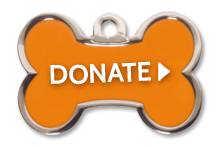Ask Crystal: Selective Hearing
Welcome to “Ask Crystal,” where you can ask your pet behavior questions! You can submit your question for Crystal at the bottom of the page!

Dear Crystal,
My dog seems to have selective hearing. He is always barking at things so I call him to come inside and he ignores me. But if I am calling him to come to dinner, he can suddenly hear me! How can I get my dog to come back to me every time I call him? I am scared there is going to be a time when I really need him to come and he isn’t going to listen! Help!
Sincerely,
Selectively Deaf Dog
Dear Selectively,
Many owners struggle with dogs that seemingly lose their hearing at convenient times. Not dissimilar to spouses that lose their hearing when you ask them to take out the trash! A recall is a learned behavior, dogs are not hardwired to come when called. Fortunately, it is pretty easy to teach but you do have to put the work in and really practice many times.
Dogs learn by association. We need to pair the dog’s name with a reinforcer. That is anything which will make the behavior occur more often. That could be food, play, petting and praise depending on the dog. Make a list of your dog’s reinforcers in order of lowest to highest. You may want to do a taste test to see what gets him really excited. Think chicken, cheese, hot dogs, etc. for high value reinforcers. Pay according for new or difficult behaviors. Always follow your recall with an immediate reinforcer.
While we are in the training phase, there are a few rules to remember that will help teach a reliable recall.
- Always keep it positive. This needs to be fun for your dog. We should never be punishing our dog for coming or not. If you call your dog and then yell at him when he gets there, that isn’t terribly motivating. Use a happy tone of voice when you call him. And don’t call him from things he is enjoying until he has had a lot of really solid practice and is coming reliably during practice.
- Don’t call your dog unless you are 100% sure he is going to come. When we call the dog and they ignore us we teach them something called learned irrelevance which basically means that when something has no consequence, they don’t pay attention to it. We need to set up training scenarios for success. In those situations where you really need your dog, go get him and put him on leash or try calling from a closer distance.
- Never chase your dog. You aren’t going to catch them and it becomes a game to them. If your dog gets out accidently before he is trained, squat or lie down and make high pitched squeals to get him back.
Start by working on attention. Stand with your dog on leash in a distraction free environment like inside the house. Stand there without talking or looking at him. When he turns back to look at you, mark with a verbal “yes” and feed a treat, go back to being neutral. Practice around different areas of the house and when he is really starting to get it, work on it in the yard and then on your neighborhood walks.
The Name Game teaches him to turn and come to you when you say his name. Start by standing in front of him and saying his name and then say “yes” and treat. Repeat this for a couple of sessions until the dog’s ears perk up at the sound of his name. The next step is when your dog is turned away from you, call his name in a high-pitched tone of voice. When he turns his head to look at you, say “yes” and stand there and wait for him to come all the way over to you and feed a treat. Only say the dog’s name once when you call him. If he doesn’t respond, make some squeaky noises until he turns to look at you.
Games are a great way to train. If the dog is having fun, he will be much more likely to learn and be motivated to do the behavior again.
There are so many fun recall games to play with your dog.
Ping Pong
Have two people stand at least 10 feet apart. Each person takes turns calling the dog. The dog will be running back and forth between the two people. When the dog is starting to get the game and predict which person is going to call them, switch it up, so that the other person calls them instead. As the dog improves, increase the distance between the two people to make it harder.
 Hide and Seek
Hide and Seek
As your dog gets more familiar with recalls, you can hide and call them to come to you. Start out by making it easy for the dog, by hiding in fairly easy places, maybe partially behind some furniture or a corner. Call your dog’s name. When they find, you make a big deal out it by happily praising them and feeding treats.
Chase Me
Teach your dog to chase you instead! Have your dog on leash and turn away from him. Call his name and when he looks at you, turn and run off as you call out “chase me!”. When he moves toward you say “yes” and when he reaches you grab his collar and deliver about 15-30 seconds of tiny treats with verbal praise.
Go and Come
I love to use my dog’s meal for this game. I have never met a dog that doesn’t like this game. Toss a kibble away from you for your dog to go find. Say their name to get them to come back to you and feed another kibble or a higher value treat.
Release as the Reward
As your dog gets used to working around distractions, you can start to call them away from something they are doing that they enjoy. A good example is playing with another dog. You can call them away and give them their reward and then release them to go back and play. This exercise should not be done until the dog has had a lot of practice and we can feel sure they are going to come when we call.
Once your dog is demonstrating 80% or better reliability inside the house, take it outside on leash. Next, use a long line to give the dog more distance. Once the dog is performing reliably on a long line, work in a fenced in area. Next you can try a long line in other areas to test the dog in a distracting environment. At every step, you can have your dog practice running past distractions like a ball, bowl or even another dog. Always remember to set him up for success by slowing increasing distractions at a level he can tolerate.
I have no doubt that if you play these games for a while, that you will start seeing a much better recall and less selective hearing. Happy training!
Until next time,
Crystal







